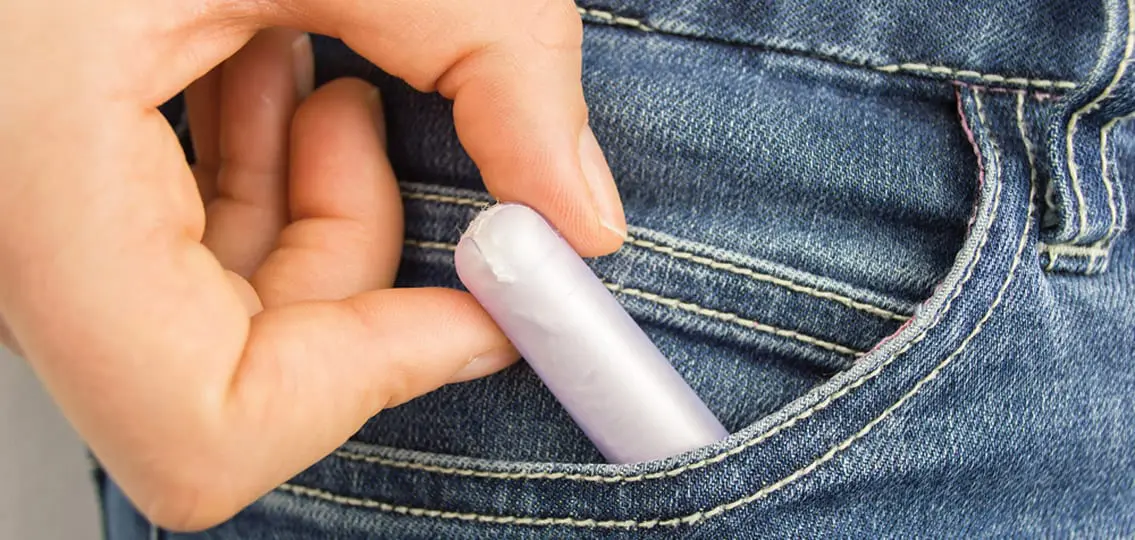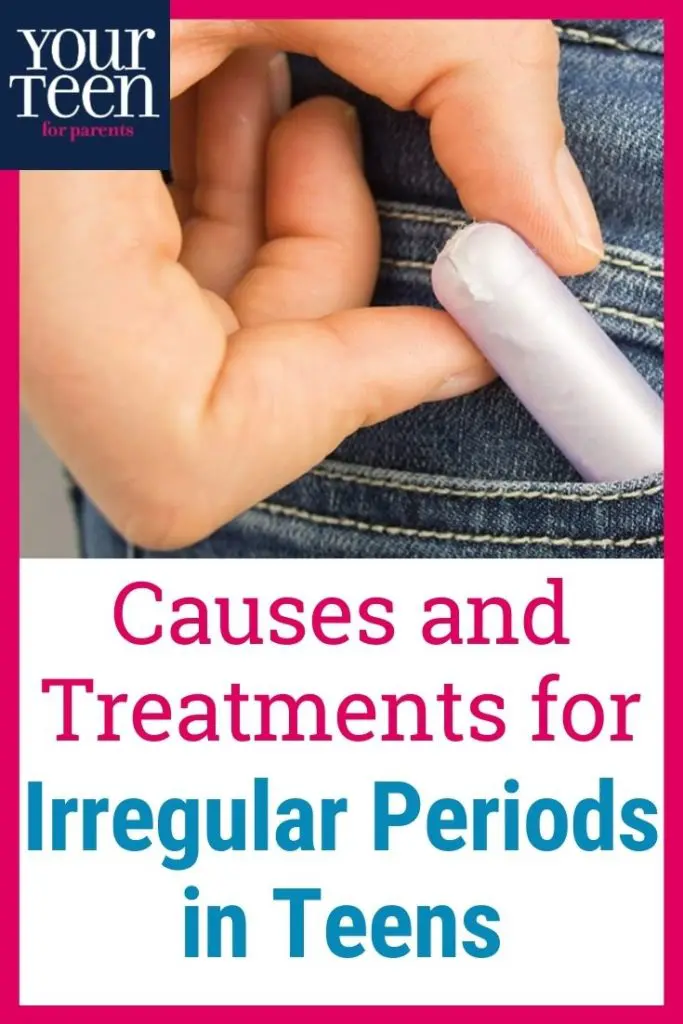Madison was a dancer who did not get her period until age 16. After two periods, her cycle stopped for six months, restarted briefly, then stopped altogether. Her parents were perplexed. “We were concerned that her height or fertility would be impacted,” says her mother. “We didn’t understand why her period was so irregular. It was very stressful for her.”

Parents of teen daughters with irregular periods often wonder: Why is my teen daughter’s period only once every two months? Why does it last for only 2 days one month and 10 days the next?
Looking for a better way to start tracking your period? Try Flo Health - the world's most popular female health app.
Should I be worried? The answer is: it depends.
On average, the age of menarche—the medical term for a female’s very first period—in the United States is around 11 or 12 years. Girls can also experience early menarche (i.e., before 11 years) or delayed menarche (i.e., after 16 years). “I’ve seen girls as young as 8, and as late as 19,” says Dr. Tahniat Syed, Clinical Director, Center for Adolescent and Young Adult Health at UPMC Children’s Hospital of Pittsburgh. “Many adolescent girls start having a monthly period after their first menses, even if it’s not quite a mature period with cramping and ovulation.”
The length of a girl’s cycle will vary, usually based on her age. Only 20% of women have their period every 28 days. “The majority of women have a cycle that varies, and until a girl is about 21 years of age, a normal menstrual cycle can be as long as 40 days,” says Dr. Syed. “As a general rule, the earlier a girl has her period, the more likely she is to have a mature, regular period. The later she gets her period, the less frequent it will be and the longer it will take for her cycle to become established.”
Once a girl’s cycle begins, it is very typical for it to be irregular. It may take 3 to 5 years for monthly regular cycles to become established.
If a period is irregular, it’s important to investigate why. Here are some reasons:
Causes of Irregular Periods
Hormones:
“A period is an indicator of overall health,” says Dr. Syed. “To have a period, the body must have mature hormonal system. Several hormones from the brain and thyroid in addition to estrogen and progesterone must be present in the right place to turn on the process that orchestrates menstruation. Sometimes the body doesn’t get it all together right away, but by about age 16, the goal is to see regular, monthly menstruation. Cramps are an indicator you are ovulating, which should consistently kick in between ages 14-16.”
Nutrition:
A girl who is underweight or overweight or has poor nutrition may experience irregularity. A girl who is losing weight too rapidly or in an unhealthy manner may see her period stop. For the body to traverse puberty and transform a child’s body into an adult body, it requires a lot of energy. “The body is smart: If a girl isn’t consuming enough fat, which is a building block of hormones, the girl’s body will see that as a signal to stop ovulating,” says Dr. Syed. “Your body must maintain 23% body fat to have a period. If a girl is not eating enough, her body knows it can’t also menstruate. During your period, you lose a lot of protein, iron, and tissue; a body with inadequate fat reserves will cease to menstruate.”
Similarly, a young woman who is significantly overweight may experience hormonal fluctuations that affect her cycle. Irregular periods may also be a symptom of polycystic ovary syndrome (“PCOS”) which disrupts ovulation.
Exercise:
Female athletes in certain sports (dance, soccer, track, gymnastics) and young women who over-exercise may see their periods stop.
Stress:
“A lot of the young women I see for are high achieving students with AP classes and a full load of honors classes,” observes Dr. Syed. “Stress and anxiety can absolutely be a factor in changes in a young woman’s menstrual cycle.”
Pregnancy:
If your teen is sexually active and skips a period, she should be seen by a doctor to rule out pregnancy.
Looking for a better way to start tracking your period? Try Flo Health - the world's most popular female health app.
Treatments for Irregular Periods
If your daughter has an irregular cycle, when should she see a healthcare provider? “If a girl has had an established pattern, which then starts to vary either in the number of days that she experiences bleeding, or in the amount of blood flow she experiences, that’s a cause for concern,” according to Dr. Syed. “Missing a period for 3 months in a row is an alert that something is going on and it’s time to meet with a health care provider to investigate why.”
What’s the appropriate treatment for an irregular period? Treatment will depend upon the reason for the irregular period. “If a girl is young and just has an immature cycle, I would just monitor her,” says Dr. Syed. “It’s not a big deal if she doesn’t have a period every month.” Young girls may find keeping a menstrual calendar very helpful to help them begin to predict their cycle.

For girls with very heavy periods, birth control pills may help regulate menstruation. “For those girls with severe period cramps, blood loss, and vomiting which cause them to miss school and their activities, the pill can make vastly improve their symptoms,” notes Dr. Syed. “Manipulating your menstrual cycle so it fits into your life can make things much more predictable and manageable. You don’t need to have a period at all until you want to ovulate and become pregnant. Having more control over your period can really improve a girl’s quality of life.”






